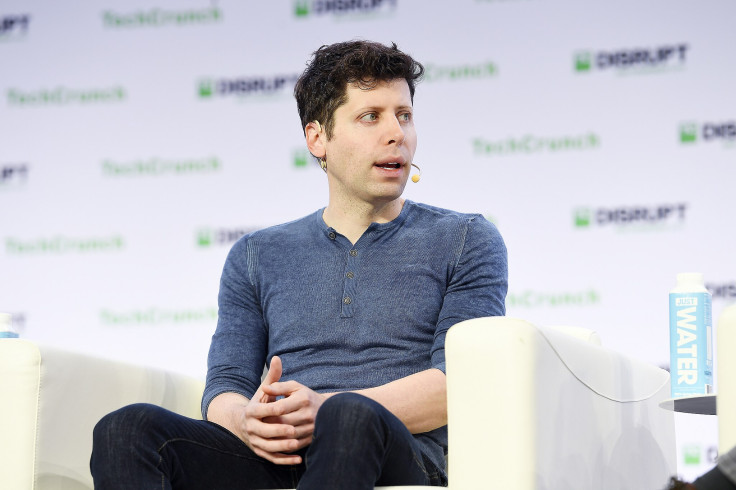Safety Concerns Surrounding AI model 'Q*' Emerge, 'Advanced Model So Powerful It Alarmed Staff'
Recent reports have brought to light safety apprehensions surrounding the newly developed Model Q*, with workers reportedly expressing their concerns to the board before the abrupt departure of CEO Sam Altman.

Recent reports have brought to light safety apprehensions surrounding the newly developed Model Q*, with workers reportedly expressing their concerns to the board before the abrupt departure of CEO Sam Altman.
The revelations shed light on internal tensions within the company, raising questions about the handling of safety issues and corporate transparency.
The model, referred to as Q*, pronounced as "Q-Star," demonstrated the capability to solve novel basic math problems that highlighted the rapid advancement of the system which raised concerns among safety researchers.
This level of proficiency in solving mathematics problems represents a notable milestone in the field of AI development.
Following the days of unrest at San Francisco-based OpenAI, various reports emerged about the dismissal and quick subsequent reinstatement of CEO Sam Altman.
Altman faced termination last Friday, only to be brought back on Tuesday night after nearly all of the company's 750 staff threatened to resign. Notably, Altman garnered support from OpenAI's largest investor, Microsoft.
The turmoil at OpenAI has brought attention to concerns voiced by experts who fear that companies, including OpenAI, might be advancing too rapidly in the development of artificial general intelligence (AGI).
AGI refers to a system capable of performing a broad spectrum of tasks at or above human levels of intelligence, raising theoretical concerns about its potential to elude human control.
Safety concerns regarding artificial intelligence (AI) stem from the potential risks and challenges associated with the development, deployment, and integration of increasingly sophisticated AI systems.
AI systems may produce unintended consequences or behave unpredictably in certain situations. The lack of a comprehensive understanding of AI's decision-making processes makes it difficult to anticipate and mitigate such unintended outcomes.
Moreover, malicious actors could exploit vulnerabilities in AI systems for harmful purposes, such as manipulating AI algorithms to make incorrect decisions or using AI in cyber attacks. Ensuring the security of AI systems is crucial to prevent them from becoming tools for malicious activities.
Andrew Rogoyski, from the Institute for People-Centred AI at the University of Surrey, emphasized that the revelation of a large language model (LLM) proficient in solving mathematics would signify a breakthrough.
According to Rogoyski, "the intrinsic ability of LLMs to do maths is a major step forward, allowing AIs to offer a whole new swathe of analytical capabilities".
Addressing the public last Thursday, just a day before his unexpected dismissal, Altman hinted that the company responsible for ChatGPT had achieved yet another groundbreaking development.
While at the Asia-Pacific Economic Cooperation (APEC) summit, he shared: "Four times now in the history of OpenAI, the most recent time was just in the last couple weeks, I've gotten to be in the room, when we sort of push the veil of ignorance back and the frontier of discovery forward, and getting to do that is the professional honour of a lifetime."
The developer of ChatGPT stated that the project was created with the primary objective of developing "safe and beneficial artificial general intelligence for the benefit of humanity" and that the business would be "legally bound to pursue the nonprofit's mission".
The coming weeks are likely to bring further revelations and responses from the company, regulatory bodies, and industry stakeholders.
The rapid advancement of AI technology has outpaced the development of comprehensive regulations. This regulatory lag raises legal challenges in determining liability, accountability, and standards for the responsible use of AI.
The unfolding narrative surrounding safety concerns and the departure of CEO Sam Altman underscores the complex challenges faced by companies at the forefront of technological innovation.
Concerns arise as AI systems become more powerful and capable of self-improvement. Ensuring that humans retain control over AI systems and prevent them from acting in ways that could be detrimental to humanity is a significant challenge.
Addressing these safety concerns requires a multi-faceted approach involving collaboration between technologists, policymakers, ethicists, and society at large.
Developing robust regulatory frameworks, fostering transparency in AI systems, and ensuring ongoing research into AI safety are crucial steps in mitigating these concerns and promoting the responsible development and use of artificial intelligence.
© Copyright IBTimes 2025. All rights reserved.






















